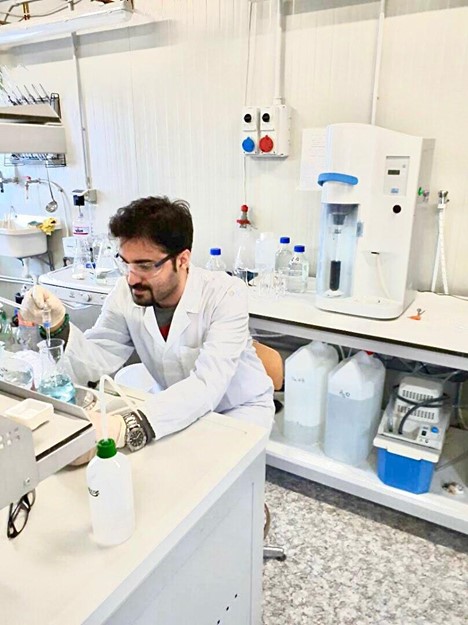HQP scholar plans to reduce greenhouse gas emissions by turning agricultural and food waste into fuel
Omid Norouzi, a PhD candidate and Highly Qualified Personnel (HQP) scholar in the School of Engineering, aims to cut global greenhouse gas emissions from agricultural and food waste by converting that waste into fuel.
Waste generated from agriculture (e.g., from farm operations, manure, harvest waste) and food (e.g., non-edible parts of fruits) generates environmental pollutants, particularly greenhouse gas (GHG) emissions.
Norouzi says if his small-scale research at the Bio-Renewable Innovation Lab can be scaled up and implemented, it “could shrink our environmental footprint by reducing waste and create new revenue streams and new jobs by extracting value from the by-products we currently throw away.”
One way to repurpose waste materials is to turn them into fuel—a process that requires a catalyst. Commercially available catalysts are expensive, use materials that are not readily available, and are difficult to adjust for specific starting materials and desired end products. Norouzi’s idea for an alternative catalyst converts organic material into different types of fuel, like light gasoline, heavy gasoline, and biodiesel.
Norouzi’s research project began in 2019 with industry partner Fruit D’Or Inc., a dried-fruit supplier/processor. This project offered a new way to break down cranberry pomace (leftover pulp) into a source of bioenergy (fuel) or “hydrochar.”
Hydrochar can be combined with zeolite [a mineral material] to create the new catalyst, which costs less than existing catalysts, uses readily available materials and is easier to modify than traditional commercial catalysts.
Funding has come from a HQP scholarship supported by the Ontario Agri-Food Innovation Alliance and U of G’s Food from Thought project. The merit-based HQP scholarship “makes me a more attractive job candidate. Employers who understand the competitive nature of the scholarship will recognize it as an accomplishment.”
Aiming to become an entrepreneur and professor, Norouzi hopes to help improve Canada’s food system, which currently sees about half of our food wasted.
For now, he will collaborate with the University of Edinburgh and the U.K. Biochar Research Centre to explore scaling-up of manufacturing processes for the catalyst. That work will be supported by the Mitacs Globalink Research Award.
“By developing and implementing our sustainable and innovative waste management scenario, we’ll create a business plan to share with communities across the country and around the world.”
Read more about how this catalyst might be used to turn Guelph river algae into biofuel on the School of Engineering website.